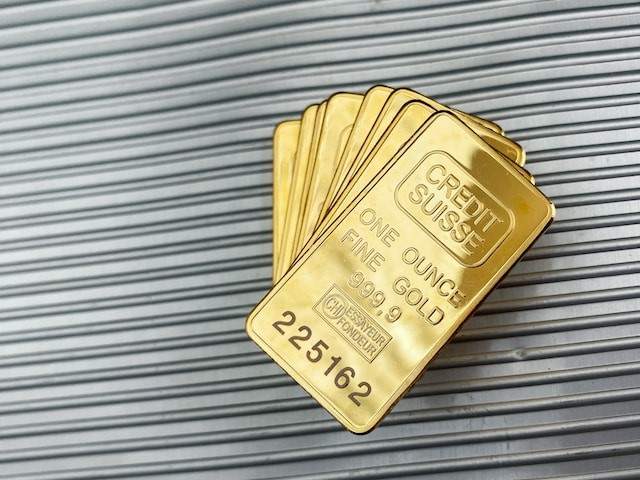How does an investor discern what makes one precious metals advisor better than the next? Can a client skip the gold firm and purchase gold or other metals personally without the assistance of a dealer or broker? What’s the difference between advisors, brokers, dealers, and custodial services?
When you have two leaders in the industry, both popular with good impartial reviews like American Hartford Gold vs Goldco, each offering a range of products particularly for those searching for gold IRA eligible options, both legitimate, reputable, and experienced. How do you make that comparison, narrow it down, select between the two?
It can be overwhelming as an investor, especially if you’re new to the investing world. First, if you’re buying gold or another precious metal to hold in an IRA, you cannot purchase it privately or hold it personally in your home or any sort of self-storage.
The IRS has stringent regulations for gold IRAs, including enlisting the services of an IRS-approved custodial service that a gold firm of your choice often assigns.
With more experience, you would have developed a preference between companies like American Hartford Gold and Goldco, for instance, the fact that Goldco focuses on gold coins. At the same time, American Hartford concentrates on gold bars.
That isn’t that big of a distinction for most, but some seasoned investors would choose one over the other for that personal preference, and that’s essentially what it boils down to. Learn tips on how to choose a precious metals company at https://www.smbceo.com/2022/01/18/5-tips-for-choosing-a-precious-metals-company/.
And then, consider a few helpful hints on establishing a partnership with a trusted professional with years in the industry giving them wisdom and perspective that allows them to understand your objectives and has provided them a substantial following of clients speaking for a solid reputation of positive experiences and much success.

How Can You Evaluate The Ideal Precious Metals Advisor
Clients who prefer to invest in gold IRAs have many more stipulations since the IRS regulates these precious metals held in a self-directed IRA. You couldn’t simply go out as a private citizen and buy any bar of gold to then contribute to an IRA.
The process is much more involved, and the IRS would not let you put that gold bar in an IRA.
On the other hand, you can do that if you merely want to purchase a physical gold bar not to be held in an IRA but as a personal investment to be held privately. Or any type of physical gold, coins, rounds, or ingot.
You can also invest in gold paper securities; you’re not limited to physical precious metals. Go here for tips on investing in precious metals, and then let’s look at some details on gold investing, particularly how to select among professionals in the industry available to advise on these products.

What is a dealer, a broker, or an advisor – how about a custodial service
Are you familiar with the terms “dealer” and “broker” in the precious metal industry and how these differ? They are distinct. For instance, a dealer is either an individual or a firm that will buy a precious metal with the objective of selling that item without altering it in any way.
The broker is also an individual or firm that will act on behalf of the investor to purchase a precious metal or sell it without retaining the title to goods or services. If you notice the distinction, it would be relatively clear which company or person you would look to for assistance.
But before you make your decision, the registered investment advisor needs to be considered, with the most significant difference being regulations. An advisor is bound by their fiduciary duty to put the investor’s best interest ahead of their own.
Brokers and dealers, by contrast as a majority, tend to join “FINRA or the Financial Industry Regulatory Authority.” Members are self-regulated as it pertains to the “ethics of any dealings or transactions” but are “strongly encouraged to deal with investors fairly.”
With all precious metal transactions, you can rest assured that you will be protected by the law to receive “guidance with integrity” from an experienced registered investment advisor with whom it’s recommended all investors choose to work with.
How about custodial services? When investing in an IRA of any kind, an investor must enlist the services of a custodian or trustee. A self-directed or gold IRA requires a specialized custodian versed in these IRAs with extensive knowledge of precious metals.
These representatives are often assigned by gold firms. The IRS must approve them to set up the self-directed account and then administer and manage the IRA until it reaches maturity. The custodian will assume custody of the gold or other metal on behalf of the investor when a transaction is made.
It will then be put in a secure, insured depository where it will remain until retirement age.
-
Transparency with prices
If you’re buying metals for an IRA, there are more fees and charges than are associated with a conventional IRA. Make sure to pay attention to the documentation, read the fine print, and ask questions so there are no surprises when approached with expenses.
Transparency is vital regardless of if you’re buying for an IRA or a private investment. Some firms are not forthcoming with metal prices, for instance, the mint or weight of your chosen commodity.
Gold is, in fact, the only “reliable and durable currency.” Still, the value will be discerned by the varied mints and weights. A reputable advisor will present these nuances to you without hesitation.
In a roundabout way of speaking, weights and mints work based on what is paid on the spot price. If the weight is high, the premium will be lower, and if the mint quality is high, the premium will be higher. It’s also essential to learn if there are hidden costs that are not always included, even in the fine print, like startup fees.
With some firms, investors must secure a balance as high as $10,000 for a company to develop the portfolio. You could accrue interest as much as 5 percent with some businesses, but others will offer nothing in interest.
Again, looking at a gold IRA, you must consider the storage fees. These are usually charged on an annual basis and can range depending on how you prefer your precious metals to be held.
Having them segregated separately from other clients’ products will be expensive, but you will be guaranteed to receive the exact metal you put in storage when you retrieve it.

-
Adding gold or precious metals to an IRA is an excellent long-term retirement investment
You might not want to invest your physical gold in an IRA currently. Still, many people are beginning to save for retirement earlier in life to ensure their future security. A lot of these individuals are using gold as stability for their investment portfolios.
The metal acts as a hedge against inflation, holds steady when the economy is uncertain and the market is volatile, and sometimes will increase when times are difficult. This helps stave off some of the threats typically seen by traditional assets when the financial landscape is experiencing strife.
Gold has a long-standing history of holding its value. It’s considered a safe-haven asset that protects wealth, diversifies a portfolio, balances the holdings, and grows steadily for the long term, making it perfect for the retiree.
When comparing firms, whether you want to invest in a gold IRA at this stage in your life, it’s important to strategize for the future. That means working with a business that will allow your portfolio to evolve as you grow toward retirement.
Final Thought
When establishing an investment strategy, your advisor should encourage you to look toward retirement early. That doesn’t mean a young person should be investing conservatively. At a young age it’s time to build that retirement wealth. But it’s also wise to diversify to protect what you’re accumulating.
Finding a good gold firm to do that is essential. How will you know which is the most suitable for you? It takes considerable research to validate legitimacy, confirm experience and reputation, and review previous and current client successes.
Once you narrow them down to a few positive choices, it will then come down to personal preference, the nuances that work for you specifically and that speak to you individually.






